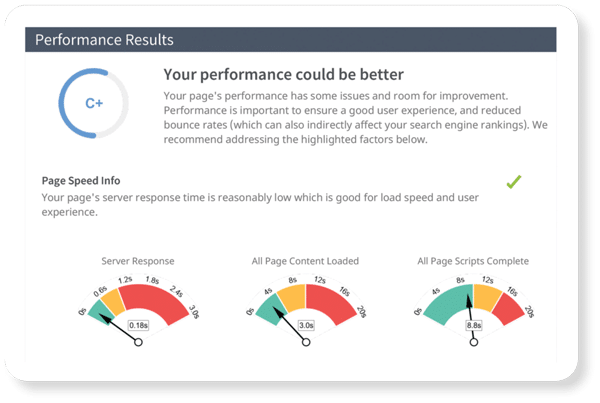
It’s interesting to note that the iPhone is only a little over ten years old, despite feeling as if we’ve had these things around forever now. Our smartphones have changed search itself. In May 2015, mobile search passed desktop search, and it has only increased since then. That’s why every site we design is completely mobile-friendly.
Even search itself has changed dramatically. Search began to evolve and become smarter in 2013 when Google introduced the Hummingbird update to its algorithm. This was the beginning of what is now known as “semantic search,” which aims to understand better both the actual words a searcher is using and also to better interpret possible meanings of some of those words that may not be clear-cut.
Since we are always thinking about search here in our MyAdvice offices, in this blog we thought we’d delve into a few specifics about how search works these days.
Multiple meanings
Adults learning English as a second language are often amazed by the number of words that have different meanings, despite being spelled the same way. You can imagine how hard this makes it for a search algorithm to understand what a searcher is seeking.
Take, for instance, the word “apple.” Google has to try and figure out if the searcher means the fruit, the Beatles’ old record label, or the maker of the iPhone. How can it do so? Google tries to classify the query by its interpretation. It says that it breaks query interpretations into three areas:
- Dominant Interpretations — This is what most users mean when they search a specific query.
- Common Interpretations — Google says that many queries can have multiple common interpretations. They use as an example, mercury, which can be either an element or a planet. Google says they cannot provide a search result here that “fully meets” a user’s search intent, due to different common interpretations. So, to cover its bases, it returns a series of results varying in interpretation and intent.
- Minor Interpretations — Many queries have less common interpretations. These are more frequently dependent upon the area where the searcher is based.
Do, Know, Go
Google says that search queries can be segmented into three categories: Do, Know, and Go. Depending on the group, Google delivers different types of results to the searcher.
-
Do
A “do” query looks to achieve a specific action, such as buying something or making an appointment. Do queries are the bread and butter of sites like Amazon and medical practices seeking patients booking appointments.
On mobile devices, some of these searches are focused on initial research and are more informational. The user then finishes the purchase or makes the appointment on a desktop or tablet, because mobile phones can be more difficult for some steps. That’s why we make our medical practice sites mobile friendly so that contact information is always available when a user is on any page of a website on their phone.
Depending on the do query, location is often factored in. This is especially true for services. For instance, when a person is searching for “Dentists specializing in dental implants,” Google assumes the searcher wants local results.
-
Know
“Know” queries are seeking information. The user wants to learn about a particular subject.
Google says these are also closely tied to what it deems “micro-moments.” Micro-moments occur when a searcher needs answers immediately, such as for movie times or ongoing football game scores.
Know queries can be a simple question, such as “What was the best picture in 2015?” or they can be broad and complex. These queries are always of informational intent; they aren’t commercial or transactional. They may start as purely informational with something like “How long is daylight in Hawaii in November?” Down the line, that can change to booking a plane ticket to Maui, which would be a do query.
For our dermatology clients, a know query about skin cancer may start as informational only. But, if the user identifies a suspect-looking spot, it may quickly change to a do query looking for the nearest dermatologist.
Know query results usually are not locally oriented. The information that answers the search query can come from anywhere.
-
Go
“Go” queries are typically seeking a brand, a specific website, or other location. Google understands that a searcher making a go query about Bauer hockey skates doesn’t want to see CCM skates returned in the search.
Google’s algorithm is always changing and evolving. MyAdvice is a member of the Google Partner program, and our digital marketing team members have certifications across the Google product suite. Trust us to make sure your website is appropriately positioned to rank as highly as possible the next time someone is searching for a service or procedure you offer.


